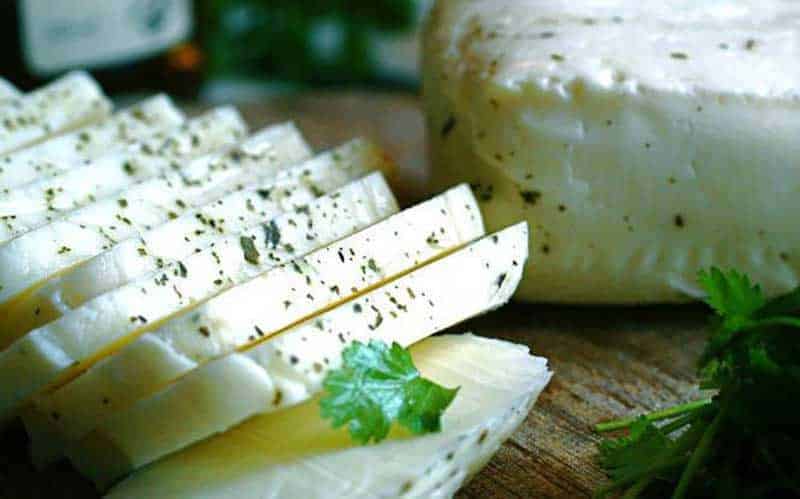The EU has claimed that halloumi/hellim production will form a ‘mini-reunification laboratory’. There is no sign of that yet
By Fahri Zihni
The much loved hellim/halloumi is perhaps the quintessential Cypriot product. Its super-extraordinary rise in popularity across the globe, now including the far east and China, means there is a mountain of money that can be made from this cheese to benefit the economy of both communities of Cyprus.
Mario Nava, director general for Structural Reform Support in the European Commission recently described the halloumi/hellim Protected Designation of Origin (PDO) as a shared heritage project of the island, forming a “mini-reunification laboratory”. Are the readings from this laboratory experiment showing progress towards reunification, or against?
The decision for Turkish Cypriots to sell goods into the European Union was made in 2004 by the EU after the United Nations Annan Plan referendum, where Turkish Cypriots voted in favour of the proposed unification of the island, and Greek Cypriots against. The overwhelming thought across the UN, EU and UK was that the Turkish Cypriot community should not be penalised for agreeing the UN plan, and they should be supported through direct financial aid and increased trade with the EU.
Post 2010, the Greek Cypriot authorities were desperate to press on with an application for the registration of hellim/halloumi as PDO for the advantages this potentially provides. However, the European Commission was determined that the Turkish Cypriot farmers and producers have an equal opportunity to benefit from the PDO, and sales of hellim into Europe in line with EU PDO legislation.
After years of disagreement and stasis, a breakthrough was reached in 2015. An EU organised high-level meeting was held in Nicosia in July 2015 with the objective of creating an island-wide PDO application that was inclusive of the Turkish Cypriot producers. It also addressed the problem that the Republic of Cyprus had no effective control in the north. The agreed solution was simple: an independent international accreditation body, a specialist company, appointed by the commission would have delegated powers to work directly with the Turkish Cypriot producers in the north, and Greek Cypriot producers in the south.
This formula did the trick. An application was submitted and accepted for progression. The commission chiefs were competing with each other in claiming credit for what was achieved.
Unfortunately, within a few weeks, the Greek Cypriot government changed its position, arguing that powers must not be delegated to the new body because this threatened its sovereignty. It’s difficult to say whether the agreement, agreed over lunch and fatally termed a “common understanding”, was in fact misunderstood, or whether the Greek Cypriot representatives were simply going along with this to use it as a vehicle for progressing the application. Either way, this U-turn did not inspire confidence. Recriminations followed, and the commission would go on to demonstrate its displeasure by dragging out the now unstoppable PDO process over the next six years.
Since the PDO status was finalised in April 2021, the Greek Cypriot authorities have been dictating the terms of the contract with the “independent” body company Bureau Veritas (BV).
Right now, the Turkish Cypriot farming community is still waiting for the Greek Cypriot authorities to engage the services of BV to carry out essential health and hygiene tests on food and animals.
Today, there are in excess of 50 Greek Cypriot producers who obtained the coveted PDO, but only one in the north, awarded in March 2023, due to the Greek Cypriot authorities’ delays in assigning BV to carry out work in the north.
As recently as January 2023, official Greek Cypriot staff in Lebanon took political action to stop the sale of Turkish Cypriot exported hellim to their long running clients. Turkish Cypriot producers were shocked and dismayed. How can the Turkish Cypriot producers trust the Greek Cypriot authorities to facilitate the export of hellim into the lucrative markets of the EU, when it is, at the same time, going out of its way to block its sales into countries outside the EU?
Accredited south Cyprus halloumi has been flying off the shelves of European supermarkets since 2021, but not a single north Cyprus hellim has been sold to the EU to date. As the stalling game continues, it could be many years before sales of any significant magnitude can begin, if ever.
Thanks to the patience and perseverance of the Turkish Cypriot Chamber of Commerce, after 19 years of ongoing discussion, the commission finally persuaded the Greek Cypriot authorities to lift their illegal ban on the sale of Turkish Cypriot olive oil, table olives, jam, carob molasses, tahini, halva, and fruit juice across the Green Line last year.
However, pitifully few of these products have actually crossed the Green Line to date. This is because although these foodstuffs have already been inspected for compliance for health and hygiene to international standards, they still need to be tested again before entering the south. There will be no surprises if any testing agency of the Greek Cypriot authorities takes forever to test and authorise these goods.
Ironically, the commission pays for the costs of the BV contract for the north out of Turkish Cypriot allocated funds, but neither itself, nor the Turkish Cypriot producers appear to have any say over it. The reality of the commission handing over the BV contract for north Cyprus to the Greek Cypriot authorities is that work in the north can be delayed, cancelled or altered at will, arbitrarily.
The Green Line regulations have been in existence for 19 years, yet less than 1 per cent of the island’s exports to the EU originate from Turkish Cypriot producers. The commission needs to work harder to address this gigantic disparity and fulfil its legal obligation to include all producers of Cyprus in the PDO.
Phil Hogan, European Commissioner for Agriculture wrote to me in September 2015, making a commitment that if the control body did not carry out effective and efficient controls in the north, the commission would intervene. Will it? We await.
Readers can make up their own minds about whether the evidence to date from the halloumi/hellim “mini-reunification laboratory” is leading the two communities towards, or away from unification.
Fahri Zihni is former chair of Council of Turkish Cypriot Associations (UK) and former chair of Embargoed.org, a human rights group which campaigns against the embargoes on northern Cyprus. He is a former policy advisor at the UK’s Cabinet Office and a former president of Society of IT Management, UK.







Click here to change your cookie preferences